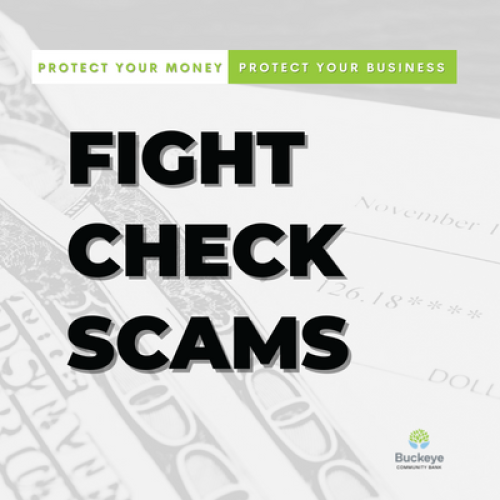Sep 09, 2022
Fraud against consumers continues to be a target of thieves using fake checks. According to the American Banking Association, here is what you should know to avoid falling victim.
It is common for fake check scams to start with an offer to:
- Buy something you advertised for sale;
- Pay you to work at home;
- Give you an "advance" on a sweepstake; or
- Send you more than the amount owed and ask you to wire the excess funds back to them.
The following tips can help you avoid fake check scams:
- A Cleared Check May Not Mean You're Clear - Federal law requires banks to make deposited funds available quickly, but that doesn't mean the check is valid. You can ask your banker any questions you may have about the check. Be sure to explain where the check came from, why it was sent to you and if you've been asked to wire money back.
- Don't Get Fooled By a Check's Appearance - Counterfeit checks are created by scammers using sophisticated technology to mimic legitimate checks. They can take the form of counterfeit money orders, fraudulent cashier's checks or fake checks seeming to come from legitimate companies.
- Don't Pay to Play - There is no legitimate reason for someone giving you money to ask you to send money back or give you more than the exact amount. It's a red flag that it's a scam.
- Avoid Easy Money Offers - Do not respond to online solicitations and social media offers for "quick ways to earn extra cash," as easy money is rarely legit.
- Identify Before Sending Money - Make sure you verify the person's identity before sending any funds. Sending money to someone you don't know is incredibly risky. The fact that someone contacted you doesn't mean they are trustworthy.
You should notify your bank immediately if you suspect fraud. Bank staff are experts at spotting fraudulent checks. Report the scam to the Federal Trade Commission at reportfraud.ftc.gov and the Ohio Attorney General at ohioprotects.org.
Find out more about protecting your business and yourself at bit.ly/buckeyesecurity.





